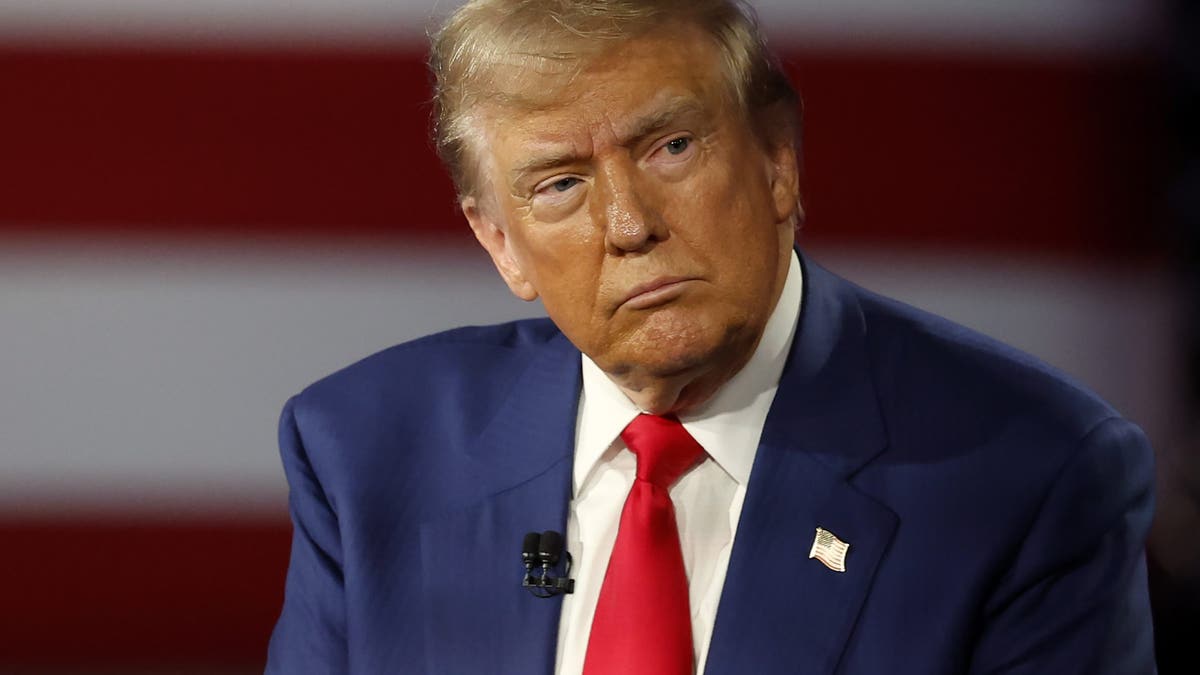Trump vows to combat frightening border crisis by deporting migrant criminals if elected
Former Arizona Supreme Court Judge Andrew Gould joins Fox News Live to weigh in on national security threats the U.S. faces under the Biden-Harris administration.
Former President Trump is pledging to "save our cities" from what he has called a "migrant invasion," outlining his plans to cut a number of migrant programs if re-elected to the White House – amid an ongoing debate over Haitian migration.
"As President I will immediately end the migrant invasion of America," Trump said in a social media post on Sunday.
Trump has spent much of his election campaign promising to secure the southern border. Last week he said he wants to be known as the "border president" and has previously promised to launch a mass deportation effort.
However, on Sunday he also refocused on broader migration policies, some not directly related to the southern border or illegal immigration – including the ending of the Biden-era use of humanitarian parole and the suspension of refugee resettlement.
"We will stop all migrant flights, end all illegal entries, terminate the Kamala phone app for smuggling illegals (CBP One App), revoke deportation immunity, suspend refugee resettlement, and return Kamala’s illegal migrants to their home countries (also known as remigration)," he said.
The remarks came after the influx of Haitian migrants into the small town of Springfield, Ohio, was in the spotlight. At last week's presidential debate, Trump echoed viral claims that migrants had been seen eating pets and animals.
"In Springfield, they're eating the dogs, the people that came in, they're eating the cats," Trump said. "They're eating the pets of the people that live there."
FOCUS GROUP REACTS TO TRUMP CLAIM THAT MIGRANTS ARE ‘EATING THE DOGS’ IN OHIO TOWN
Officials in Springfield have denied that claim, saying there is no evidence or substantiated reports of such incidents. But local residents have expressed concern and anger about the impact that the influx of many more than 12,000 migrants from the impoverished country has had on their community.

Former President Trump participates in a Fox News Town Hall with Sean Hannity at the New Holland Arena on Sept. 4, 2024, in Harrisburg, Pennsylvania. (Kevin Dietsch/Getty Images)
Trump’s proposals identified ways to limit the number of pathways for those, including Haitians, to enter or stay legally in the U.S. and which have been either created or expanded under the Biden administration.
Trump’s reference to migrant flights appears to refer to the Cuban, Haitian, Nicaraguan and Venezuelan parole processes, which allow up to 30,000 migrants from those countries to enter each month and be paroled into the U.S. for 18 months. Trump could both end CHNV, and also limit the renewal of the parole authorization.
Trump also mentioned ending "deportation immunity," referring to Temporary Protected Status, which shields nationals of designated countries from deportation and offers them work permits. Homeland Security Secretary Alejandro Mayorkas most recently extended and redesignated Haiti for TPS until February 2026.
The City of Springfield said in an official FAQ that the approximately 12,000-15,000 immigrants in the city from Haiti arrived via parole and are protected via TPS.
CLICK HERE FOR MORE IMMIGRATION COVERAGE
Trump also said he would end the use of the "Kamala phone app" – the CBP One app. The app was introduced during the Trump administration, but was expanded by the Biden administration to allow migrants to make appointments to be paroled into the U.S. at ports of entry. Currently, about 1,450 migrants are being paroled into the U.S. each day under the app. Republicans have said its use has been an abuse of parole – which is limited to a case-by-case basis for significant public benefit or urgent humanitarian need.
Trump also promised to suspend refugee resettlement, which dropped to lows under the Trump administration. In the last year in office, the administration set a cap of just 15,000 a year. That has expanded to a cap of 125,000 under President Biden.
"I will save our cities and towns in Minnesota, Wisconsin, Michigan, Pennsylvania, North Carolina, and all across America. #MAGA2024!" Trump said in his social media post.
CLICK HERE TO GET THE FOX NEWS APP
The plans would be a stark contrast from the Biden administration, which has significantly expanded its "lawful pathways" as part of its strategy to deal with the historic crisis at the southern border. It has also criticized Trump for not supporting a bipartisan bill that would have increased funding to border agencies and limited some arrivals into the U.S. if they reached a certain level.















































